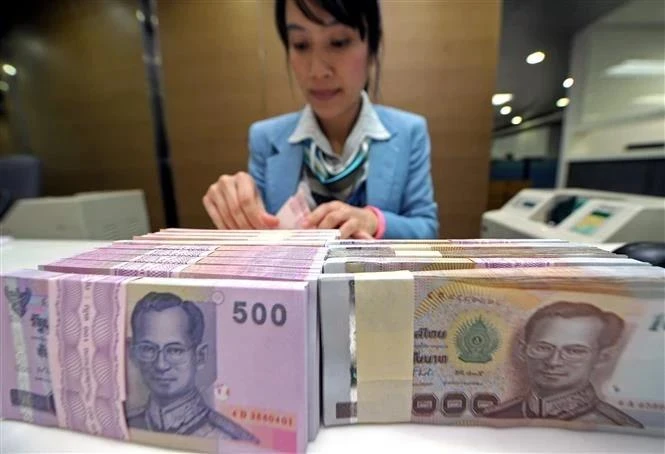
Bangkok (VNA) - The Thai baht has been experiencing a greater degree of volatility against the US dollar than its regional peers, mainly due to market expectations of a US policy rate cut and global gold prices.
The baht's rate of volatility stands at 7.3%, slightly below the Korean won at 7.4%. However, the baht's volatility is higher than other regional currencies, with the Malaysian ringgit and Indonesian rupiah both recorded at 5.5%, the Philippine peso at 4.7% and the Singapore dollar at 3.7%.
Meanwhile, the US Dollar Index recorded a volatility rate of 5.3%, according to Kasikorn Research (K-Research). The US Dollar Index is a measure of the value of the US dollar relative to a basket of foreign currencies, often referred to as a basket of US trade partners' currencies.
The baht has been fluctuating significantly since August 30, moving between 33.45 and 33.78 THB per dollar, influenced by global gold prices. On September 6, the baht reached a 19-month high of 33.49 against the dollar. This week, the baht is expected to move within a range of 33.30-34 THB.
According to Kanjana Chockpisansin, head of research for banking and the financial sector at K-Research, key factors to monitor include the new government's economic policies, foreign fund flows, global gold price movements and US economic data.
Poon Panitchpibun, a money market strategist at Krungthai Global Markets, said the baht's significant depreciation is linked to movements in the dollar and gold prices based on US economic data.
In August, US non-farm payrolls increased by 142,000 positions, lower than the market expectation of 160,000, but employment rates improved in some segments.
Given this scenario, some investors revised their view, anticipating that the US Federal Reserve (Fed) will not cut its policy rate by 50 basis points, as previously expected, thereby supporting a stronger dollar compared to the baht.
TTB Analytics projects that the baht will continue to experience volatility, largely driven by the dollar in line with the Fed's policy rate direction and the upward trend in global gold prices./.






















